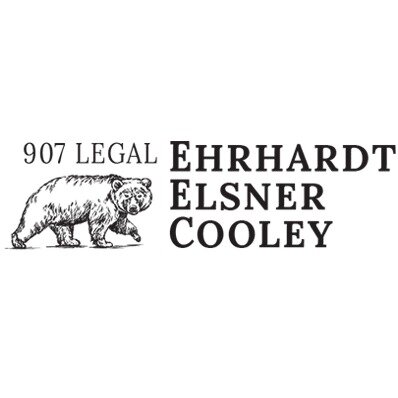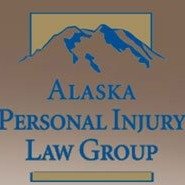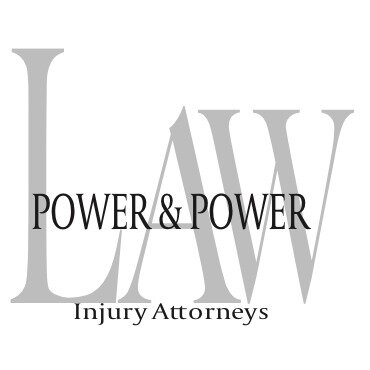Best Car Accident Lawyers in Alaska
Share your needs with us, get contacted by law firms.
Free. Takes 2 min.
Or refine your search by selecting a city:
List of the best lawyers in Alaska, United States
About Car Accident Law in Alaska, United States
Car accident law in Alaska covers the legal rights and responsibilities of those involved in traffic collisions within the state. This area of law determines who is at fault for damages or injuries resulting from a motor vehicle accident. Alaska follows a fault-based system for car accidents, which means the liable driver - or their insurance company - is responsible for compensating anyone injured or whose property was damaged due to the accident. Claims can arise from disagreements over fault, insurance coverage, property damage, medical bills, and compensation for pain and suffering.
Why You May Need a Lawyer
Not every car accident requires the help of an attorney, but many situations can benefit from legal guidance. Common reasons to seek a lawyer after a car accident in Alaska include:
- Injury or death resulting from the accident.
- Disputes over fault or compensation.
- Insurance companies denying or undervaluing your claim.
- Complex cases involving multiple vehicles or parties.
- Permanent or long-term disability as a result of injuries.
- High-value property damage claims.
- Uninsured or underinsured drivers involved in the accident.
- Legal questions about your rights and obligations.
- Accidents involving government vehicles.
- Hit-and-run incidents.
A lawyer can help navigate the claims process, negotiate with insurance companies, gather evidence, and represent your interests if the case proceeds to court.
Local Laws Overview
Alaska's car accident laws have unique elements that all drivers should know:
- Fault-Based System: The at-fault driver is responsible for damages and injuries. Victims can seek compensation from the at-fault driver, their own insurer (if they have coverage), or through a lawsuit.
- Statute of Limitations: In Alaska, you generally have two years from the date of the accident to file a personal injury lawsuit and two years for property damage claims.
- Comparative Negligence: Alaska uses a pure comparative negligence system. Even if you are partly at fault for the accident, you may recover damages, but your compensation will be reduced by your percentage of fault.
- Mandatory Insurance: Alaska law requires drivers to carry minimum amounts of liability insurance: $50,000 per person and $100,000 per accident for bodily injury, and $25,000 for property damage.
- Reporting Requirements: Car accidents must be reported to law enforcement if there are injuries, deaths, or property damage exceeding $2,000. Drivers must also submit a written report to the Alaska Department of Administration within 10 days, unless police took an official report at the scene.
Frequently Asked Questions
What should I do immediately after a car accident in Alaska?
First, check for injuries and move to a safe area if possible. Exchange information with other drivers and witnesses. Call the police for accidents involving injury, death, or significant property damage. Document the scene with photos and contact your insurance company to report the incident.
Do I have to report every accident to the police?
You must report any accident involving death, injury, or property damage over $2,000 to law enforcement. If the police do not respond or take a report, you must file a crash report with the Alaska Division of Motor Vehicles within 10 days.
What if the other driver does not have insurance?
If the at-fault driver is uninsured or underinsured, you may seek compensation through your own uninsured or underinsured motorist coverage, if you have it. An attorney can help explore all available recovery options.
How is fault determined in Alaska car accidents?
Fault may be determined by police investigation, insurance adjusters, or a court. They consider evidence such as accident reports, witness statements, vehicle damage, and traffic laws to assign fault percentages.
Can I recover damages if I am partly at fault for the accident?
Yes, under Alaska's pure comparative negligence system, you can recover damages even if you are partially at fault. However, your compensation is reduced by your percentage of fault. For example, if you are 30 percent at fault, your recovery will be 70 percent of your total damages.
What compensation can I receive after a car accident?
You may be eligible to recover costs for medical bills, vehicle repairs, lost wages, pain and suffering, and other accident-related damages, depending on the details of your claim and the extent of your injuries.
How much time do I have to file a lawsuit after a car accident in Alaska?
You generally have two years from the date of the accident to file a lawsuit for personal injury or property damage in Alaska.
Should I accept the first settlement offer from an insurance company?
It is often wise to consult with a lawyer before accepting any settlement offer. Insurance companies may initially offer less than your claim is worth. A lawyer can help evaluate the offer and negotiate for fair compensation.
What if the accident involved a government vehicle?
Claims against government entities have special procedures and shorter deadlines. You typically must file a notice of claim before you can sue. Consulting a lawyer quickly is important to protect your rights.
How much does it cost to hire a car accident lawyer in Alaska?
Many car accident lawyers work on a contingency fee basis, meaning they only get paid if you recover money. The fee is usually a percentage of your settlement or award. Always discuss fees and payment terms before hiring an attorney.
Additional Resources
For more information or assistance, you may consider reaching out to the following resources:
- Alaska Division of Motor Vehicles - Car accident reporting requirements and forms.
- Alaska State Bar Association - Lawyer referral and information services.
- Alaska Department of Administration - Information on insurance requirements.
- Alaska Court System - Guidance on filing lawsuits and accessing court records.
- Local law enforcement agencies - Accident reporting and investigation assistance.
Next Steps
If you have been involved in a car accident in Alaska and need legal advice, consider the following actions:
- Document all facts about the accident including photos, police reports, medical records, and insurance correspondence.
- Report the accident as required by Alaska law and your insurance policy.
- Do not admit fault or accept any settlement without considering the full impact of your injuries and damages.
- Contact a qualified Alaska car accident lawyer for a case evaluation. They can help assess your rights, determine liability, and handle negotiations with insurers or in court.
- Take action promptly to protect your ability to recover damages within the statute of limitations.
Navigating the aftermath of a car accident can be challenging, but knowing your legal rights and obligations in Alaska will help ensure the best possible outcome.
Lawzana helps you find the best lawyers and law firms in Alaska through a curated and pre-screened list of qualified legal professionals. Our platform offers rankings and detailed profiles of attorneys and law firms, allowing you to compare based on practice areas, including Car Accident, experience, and client feedback.
Each profile includes a description of the firm's areas of practice, client reviews, team members and partners, year of establishment, spoken languages, office locations, contact information, social media presence, and any published articles or resources. Most firms on our platform speak English and are experienced in both local and international legal matters.
Get a quote from top-rated law firms in Alaska, United States — quickly, securely, and without unnecessary hassle.
Disclaimer:
The information provided on this page is for general informational purposes only and does not constitute legal advice. While we strive to ensure the accuracy and relevance of the content, legal information may change over time, and interpretations of the law can vary. You should always consult with a qualified legal professional for advice specific to your situation.
We disclaim all liability for actions taken or not taken based on the content of this page. If you believe any information is incorrect or outdated, please contact us, and we will review and update it where appropriate.
Browse car accident law firms by city in Alaska
Refine your search by selecting a city.
















